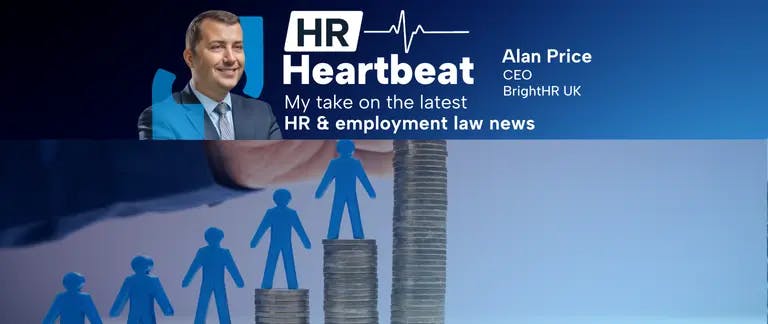First published on Tuesday, April 1, 2025
Last updated on Tuesday, April 1, 2025
Welcome to HR Heartbeat, where we take a look at the week’s most pressing HR and employment law stories. With over 18 years’ experience in employee relations, I give my opinion on current trends impacting your business, as well as my own personal commentary on all things HR and legal.
Primark boss resigns after allegations of inappropriate behaviour
We learned this week that the boss of one of the UK’s largest clothing retailers, Primark, has resigned after complaints about his behaviour towards a female colleague in a “social environment”.
Paul Marchant, who had led the business for over a decade, fully cooperated with the investigation and acknowledged that his “actions fell below the standards of [the business]”. Primark stated it remains in contact with the individual who raised her concerns and continues to offer her support.
As a CEO myself, I was incredibly disappointed to learn the news. At the very least, it’s good to see that the right processes were followed, accountability has been taken, and support has been offered to the person affected.
CEOs, executives, and managers have to understand that their behaviour sets an example for everyone in the business. Anything below that standard sets a poor example and can be intimidating. Why? They’re in a position of authority and leadership, and you have to take that into account. The lesson here is that nobody should be above criticism, and we should all try our best to ensure our colleagues feel safe and respected.
Employers face large increase in employment and wage costs this week
The combination of rises in the National Living Wage (NLW) and employer National Insurance Contributions (NICs) is going to hugely increase the cost of employing low-paid workers, according to new research published by the Resolution Foundation.
The wage changes, which represent a 6.7% increase in the NLW from £11.44 to £12.21 on the April 1st, come at the same time as an increase to NICs, which takes effect on April 6th and raises £26 billion in total.
There’s been a lot, and I mean a lot, of discussion about the effects this will have on small businesses. I know that FY26 is going to be incredibly tough for many SMEs. Between tough market conditions, global economic uncertainty, and these new pressures on their bottom line, my advice to business owners would be to:
Ensure your payroll systems are updated to reflect the new NMW rates to avoid financial and compliance trouble
Assess the financial impact and seek to streamline and save on costs in other areas
Utilise your Employment Allowance to reduce your annual National Insurance liability and offset costs
Review pricing strategies, but be mindful of customer sensitivity to changes
Gig economy bosses to face jail time if they fail to check whether employees can work legally in the UK
The Home Office has announced that company bosses hiring in the gig economy could face up to five years in prison if they fail to check if their employees can legally work in the UK.
The Home Secretary has said that under current rules, “thousands” of companies hiring gig economy and zero-hour contract workers are not legally required to check whether their employees have the right to work in the UK.
Some employers who use the gig economy approach are Deliveroo, Just Eat, and Uber Eats. And they all voluntarily carry out checks already. However, it goes without saying that there’s prevalent bad actors in the industry who seek to gain unfair advantages over the competition, and prey on vulnerable people in the process.
My advice is, funnily enough, very simple—don’t break the law. Have clear, transparent, and fair policies in place, and follow the guidance set out by the government.
And that’s a wrap from me. Tune in next time for my take on the latest headlines and employment law stories, helping keep your business ahead!






